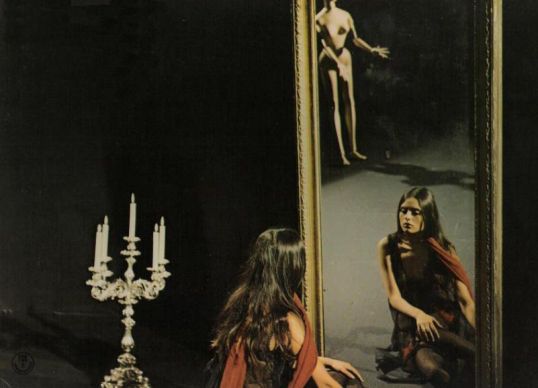The year is 2002 and countries across Europe are giving up their old currencies and making the transition to the Euro. The future looks bright, especially for Ivan (Aron Piper), a young man from Spain who has gotten a job as a courier. He drives around Europe, often at lighting-fast speeds. He takes money across the continent so that it can safely be hidden away in Switzerland. Along with his lover and boss, Leticia (Maria Pedraza), Ivan quickly rises through the ranks of an international cartel. Helping others stay wealthy leads to Ivan becoming wealthy as well. Soon, he has fast cars, fast friends, a cocaine habit, and a mustache that makes him look like a 1990s NASCAR driver.
With its constantly moving camera and its voice-over narration, this Spanish film owes more than a little to the films of Martin Scorsese, Ivan’s descent into drugs will be familiar to anyone who has seen The Wolf of Wall Street or Goodfellas. Unfortunately, Ivan is never quite as interesting a character as either Jordan Belfort or Henry Hill, largely because Aron Piper is not as charismatic an actor as either Leonardo DiCaprio or Ray Liotta. Ivan comes across as just being a punk who wandered into something that temporarily made him rich and his narration often descends into shallow psychobabble. As a character, Ivan would never have the confidence to throw hundred dollar bills off of his boat. He also wouldn’t have the creativity to pull off the Lufthansa heist. He’s boring and all the cocaine in the world isn’t going to change that.
Interestingly enough, the film also borrows from Adam McKay, with an ending that highlights a lengthy list of consequences of Ivan’s money laundering operation. Much as with the films of McKay, The Courier makes the mistake of assuming that everyone watching shares its dreary Marxist outlook and is going to be outraged. The truth of the matter is that most people would probably love to hide their money from the government because only weirdos enjoy paying taxes. The film assumes that the audience will be demanding revolution whereas the majority will probably be saying, “Hey, money laundering seems like a good idea and you get a nice car out of it! How do I get in on that?”
(Scorsese, at the very least, understands and admits that most people would rather be Jordan Belfort on a yacht than the FBI agent on a subway. Most people would rather be Henry Hill living in New York as opposed to being Henry Hill living in the suburbs of Indianapolis and being an ordinary schnook.)
The Courier does have its moments. Maria Pedraza gives a good performance as Leticia, though you do have to wonder why she should would ever waste her time with someone as boring as Aron Piper’s Ivan. Carlos Jean’s score is wonderfully propulsive and provides them film with a needed rush of adrenaline. In the end, though, The Courier never really escapes the shadow of the films that came before it.






